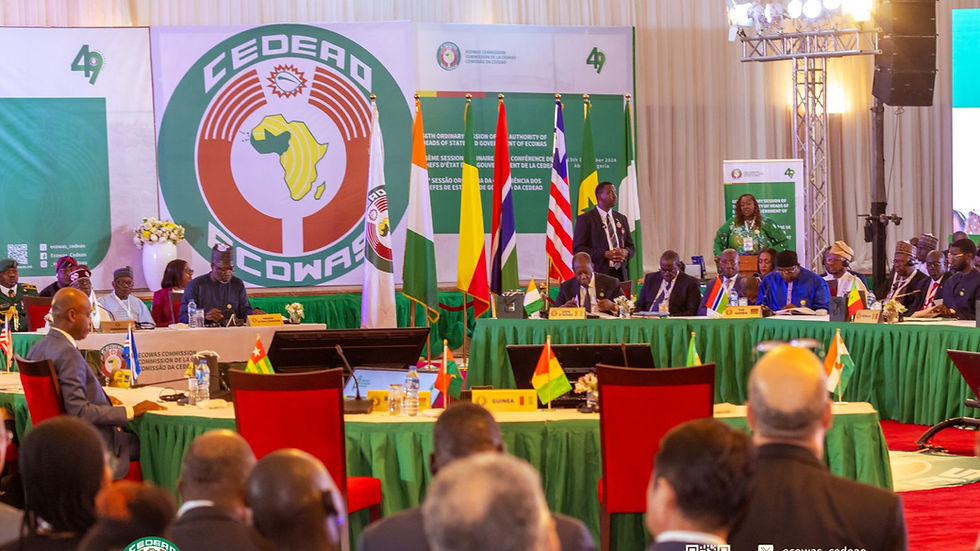Youth Advocate for Humane Drug Policy in Ghana
- WADPN

- Nov 29, 2017
- 4 min read

Until recently, the West Africa region has been perceived as only a transit zone of drugs from Latin America. This general perception started changing since June 2014 with the release of WACD ground breaking reports titled Not just in transit, drugs, the States and Society in West Africa. In 2013, Former UN General Secretary, Kofi Annan convened the West Africa Commission on Drugs (WACD) chaired by the former President of Nigeria, Olusegun Obasanjo. The Commission comprised of commissioners from diverse background in West Africa such as politics, civil society, health, security and the judiciary.
The commission after its 18 months of research, looking at the evidence, consulting experts from the region and visiting some of the most affected countries and communities in the region, WACD in June 2014, released its flagship report, including a series of evidence-based recommendations for drug policies across the region. According to the report, drug trafficking is a new threat to the development of West Africa. West Africa region is not only a transit zone of drugs from Latin America to Europe but also local production and consumption are on the rise which continues to be a worrying issue because the focus by most governments in West Africa has been punishment with the mindset that it will keep people from consuming drugs.
It is in light of this worrying situations and also, recognizing the specific needs of young people, and that they are more vulnerable to drug-related harms, the Ghana chapter of the West Africa Drug Policy Network (WADPN) sets to increase the level of youth awareness and engagement on drug policy debates and calls for decriminalization and support for harm reduction measures in the region.
The forum focused on various approaches to effectively respond to the drug challenges among the youth by educating them on the need to advocate, engage with peers, policy makers and advocating for drug policy reforms and finally sensitizing the general populace and their respective communities about the negative consequence of social stigma and the vexing issue of decriminalisation and legalisation.

Present at the forum was the African Consultant for the International Drug Policy Consortium (IDPC) who sensitized the groups about the current state of global drug policy as well as Ghana; and called on them to engender interest in advocacy and research on issue affecting them such drug related issues. She further explained that, the youth forum was part of various advocacy initiatives within the region for evidence -based drug policy that is grounded on public health and human rights and to promote the active participation of young people in drug policy development by building the capacity of youth organisations to advocate for the rights of vulnerable people who use drugs.
Mrs. Loglo further called on the youth to join the ongoing advocacy process for Humane Drug Policy which takes into consideration the rights of people suffering from problematic drug use and gives rooms for harm reductions and drug prevention programmes.
At the end of the program, the participants committed to a series of actions within their own communities including raising awareness of the rights of people who use drugs, involving community leaders, organising social and health campaigns on drug use and facilitating activities in schools with teachers and students.
Leaders from the various youth groups pledged to called on the relevant authorities to promote the rights and inclusion of people who use drugs including establishing links between prisons, health services and civil society to ensure follow ups and continuation of services for people who use drug after release from prison.
The day also saw the inauguration and birth of Youth Rise for Drug Policy Reform Ghana, a youth movement whose aim is to mobilise young people concerned with the impact of drugs and drug policies on individuals, families and communities in Ghana.
Drug policies around the World and Ghana focus mainly on prevention but failed to address the issues that confronts some young people who are into drugs for a variety of reasons. This nascent movement seeks through projects to engage all stakeholders including high schools and universities students to identify and address challenges such as sickness, incarceration, and rejection by both family and society of these young people in the Greater Accra, Central, Brong Ahafo and Volta regions of Ghana. The group hopes to extend its work to the 10 regions of Ghana.
The coalition is committed to creating a platform for young people to be engaged in the policies that affect their lives. Speaking to Mr. Timothy Pritchard Debrah, a Psychiatric Nurse and Clinical Supervisor of the University of Cape Coast, College of Health and Allied Sciences, School of Nursing, Department of Mental Health and also doubles as coordinator of Youth RISE Ghana for Drug Policy Reform and an executive member of WADPN-Gh envisions healthy communities in which young people are of sound mind, free from harm and where drug use is seen as a public health issues, and policies are evidence-based.
By Mrs Maria-Goretti Ane Loglo,
African Consultant for the International Drug Policy Consortium (IDPC)




Comments